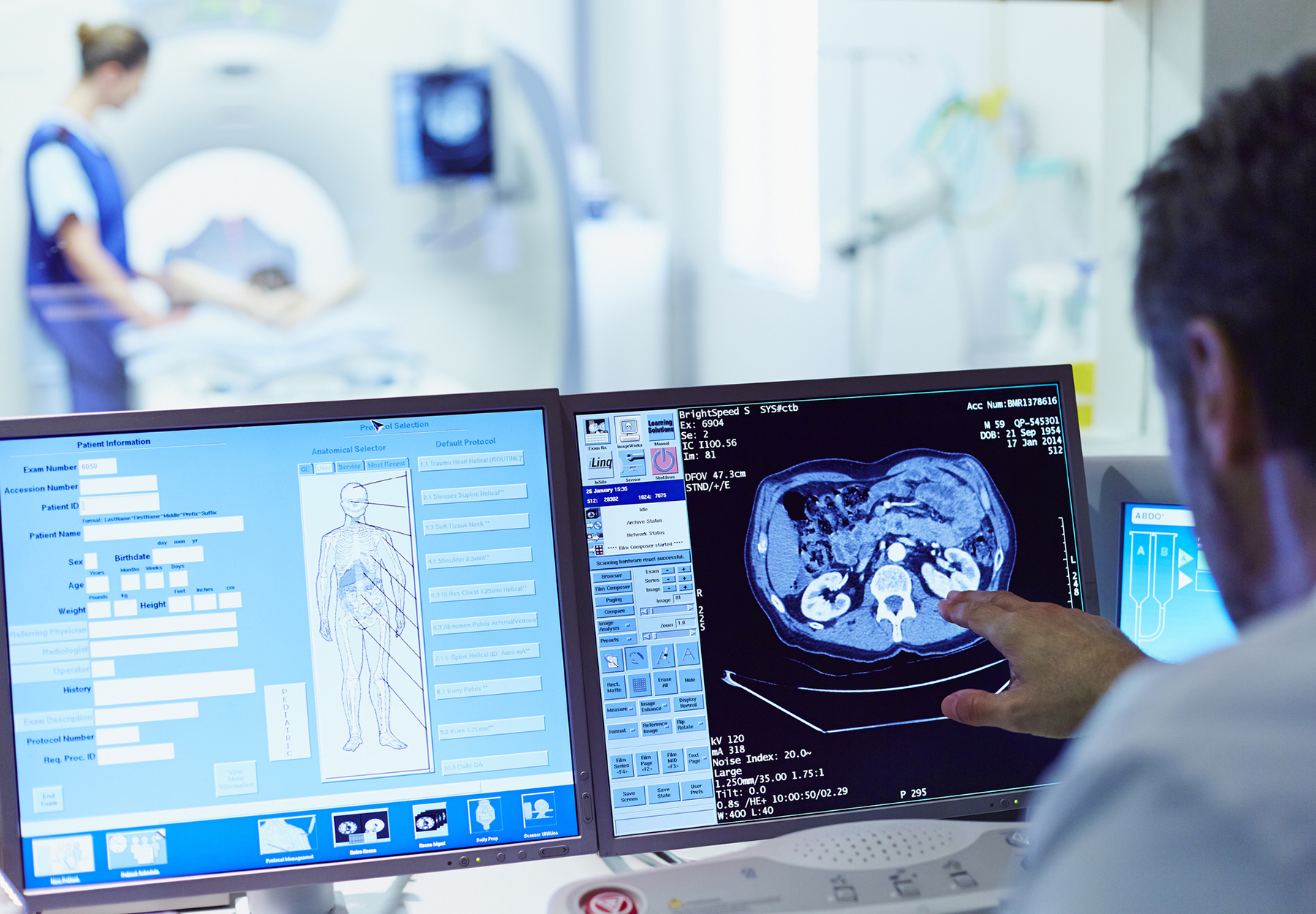Recent research presented at the Society of Nuclear Medicine and Molecular Imaging 2022 Annual Meeting shows that a virtual option could potentially reduce or replace computed tomography (CT) scans for diagnosing and treating cancer, thus lowering how much radiation patients are exposed to.
According to a press release on the research, the artificial intelligence (AI) method developed by the National Cancer Institute (NCI) generates high-quality PET (positron emission tomography)/CT images, without exposing the patient to harmful radiation, meaning it could be used more often to see how the cancer is progressing and responding to treatment.
As pointed out by the press release, people with cancer usually require many imaging studies throughout their diagnosis and treatment, which can include several PET/CT scans done close together, but “[t]he CT portion of the exam contributes to a patient’s overall radiation exposure yet is largely redundant.” The aim of the research with the new AI method was to find a way to lessen the number of CT scans required, or eliminate them altogether.
The AI model was developed using a data cohort of 305 18F-DCFPyL PSMA (prostate-specific membrane antigen) PET/CT studies, with each involving three scans:
- Low-dose CT,
- Attenuation-corrected PET, and
- Non-attenuation-corrected PET
Researchers broke these studies down into three groups, one group of 185 studies was used to train the AI model, 60 studies were used to validate it, and the 60 remaining studies were used to test the method. To evaluate the quality of the images the AI model produced, two nuclear medicine physicians examined 40 PET/CT studies without knowing whether the image was from the AI method (gen-PET) or original attenuation-corrected PET. According to the Society of Nuclear Medicine and Molecular Imaging press release, the physicians “were able to successfully detect lesions on the gen-PET images with reasonable sensitivity values.”
Kevin Ma, PhD, an NCI researcher and one of the study’s authors who was quoted in the press release, says the high-quality images produced by the AI method could open the door to patients having more PET scans each year, potentially offering better detection, assessment, and treatment of cancers.
